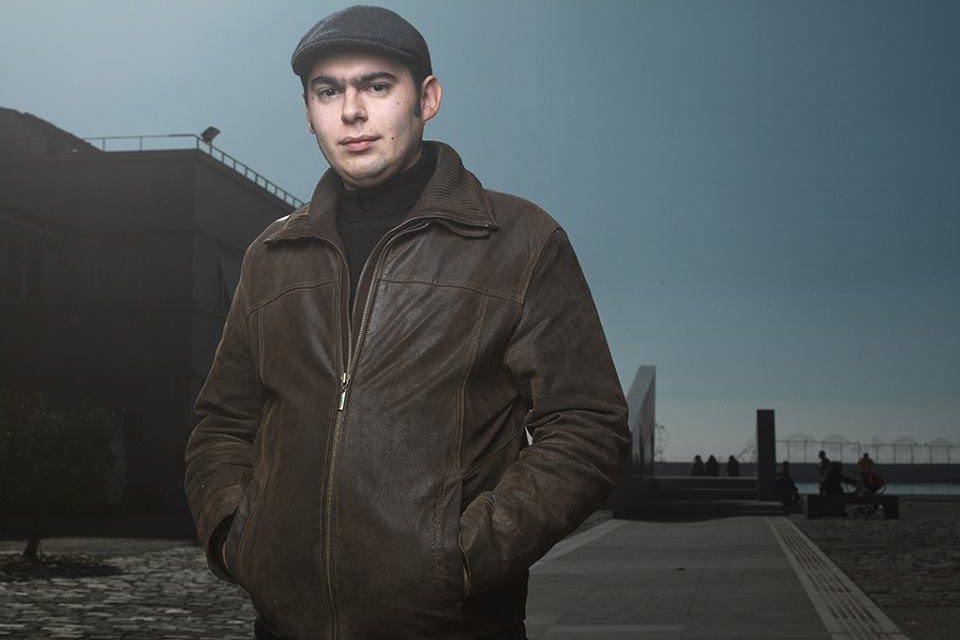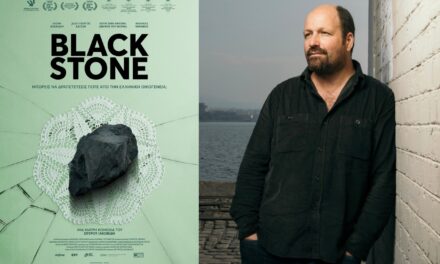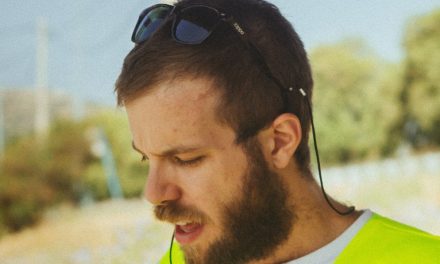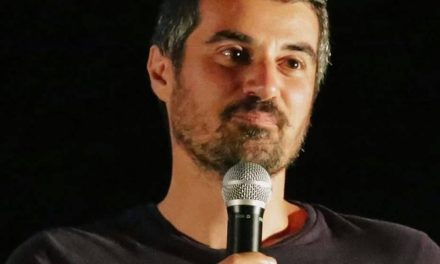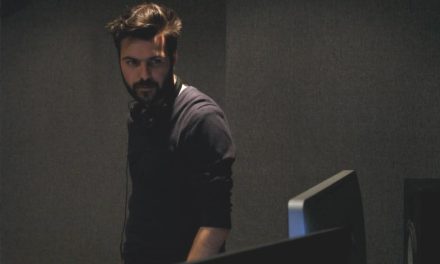The sinking feeling of fading love, a story universal and unique. What drove a young director to make a film about love’s struggle with the ravages of time? The hurtful sentiments of loss, bitterness and solitude, when love fades away, are given in a poetic way by Gabriel Tzafka in his recent film “Thorn”, the first Greek and Danish coproduction.
Born in 1986, Gabriel Tzafka graduated from the Film School of the Aristotle University in 2010 with an MA in Film Directing, and continued his studies (2013-2016) at the Danish film school SUPER16/NORDISK FILM. His filmography includes six short fiction films: “Euroman “ (2015), “Sailor” (2014), “Leader” (2011), “Oblivion” (2009), “Attimo Fugente” (2008) and “Hari” (2007), as well as “Champions: A comic tale” (2011), a feature documentary. His films have been awarded over 30 times and have participated at more than 70 international film festivals. Since 2016, he is a member of the Danish Film Directors Association. “Thorn”, his first feature film, was awarded the first “New Cinema” award at the 58th Thessaloniki Film Festival.
Tzafka talked to Greek News Agenda* about what prompted him to write “Thorn”, a film about a young couple on its honeymoon, noting he was inspired by Karen Blixen’s short stories and her poetic universe where “joy and mourning go hand in hand”. Tzafka, who lives and works in Denmark, elaborates on his Greek roots and influence by Greek literature as well as the films of Theo Angelopoulos. Finally, he explains that he used narrative elements from different film genres, especially psychological thriller, introducing the audience to his fluid narration, a different way of understanding time and space in film.
Vibeke Hastrup, “Thorn” (2017)
There is a lingering sense of loss and mourning in “Thorn”. How did you decide to work on the subject of pain when love fades?
Everything started 6 years ago, when I was reading the short stories by Karen Blixen. Back then I was preparing myself for moving to Denmark. I got inspired by these stories. Karen Blixen creates a universe where joy and mourning go hand in hand. I found it unique and extremely poetic. That’s how I got the idea and the concept for “Thorn”. I kept working on it while I was doing my first Danish short films. After a few years I wanted to move on with my first feature film and “Thorn” was ready to start with. The subject of love and pain is universal and maybe our very first experiences from early in our childhood. We can relate with it easily. I wanted to place it in a non specific time frame so we can also experience it as a lifelong element, not only as a memory. In “Thorn” I had the appropriate narrative concept to bring these ideas in.
Neel Rønholt, “Thorn” (2017)
Why did you choose the forest as a setting for the story and what is its function in the film?
The forest is a primitive location and we used it as a narrative extension of our characters. We wanted to express the different perspectives of Time and its effect on our story away from measurable parameters of modern life. This way we had our protagonists isolated and forced to interact either in action, in dialogue or in silence. Furthermore, forest is a place where metamorphosis is happening continuously. Depending on the time of day, it’s magic, romantic, scary, dark, colourful, relaxing, hypnotic or raw.
Olaf Johannessen, “Thorn” (2017)
Your film has a lot of influences by Bergman and Tarkovsky. How does your Greek origin influence your work?
The Greek language is one of the greatest influences. Languages have huge power on the way we think and each language has a different way of forming our minds and the way we perceive reality. The Greek language has its roots in myths, philosophy, alchemy, poetry, in music, all of these combining in a holistic way. Moreover, Modern Greek literature, particularly poetry, has been great influence as well. In cinema, I am thankful to have been introduced to the work of Theo Angelopoulos and the way he dealt with time and space in his work. Last but not least is the light: nowadays it sounds commonplace, but the Mediterranean light is more than beautiful: it’s an experience that is not easy to describe. And so is its shadow.
Neel Rønholt, “Thorn” (2017)
“Thorn” has a dream like quality with thriller elements. Would you like to elaborate on that?
In the film we introduce the audience to a different way of narration, a different way of understanding time and space in films. For me, it was a challenge working out how to do it in a way where we leave the door open to everyone, drawing the audience in. So I decided to use narrative elements from different film genres, particularly psychological thrillers. The audience is very familiar with the genre, and thus already holds the keys to enter the universe of “Thorn” and understand the new narrative methods we are using to tell the story.
Jens Sætter Lassen and Neel Rønholt, “Thorn” (2017)
“Thorn” was the first Greek and Danish co-production. Was it an easy procedure?
I have been living and studying in Denmark the last 6 years. Before that I studied and made films in Greece. So I was very well prepared for this co production; nothing was new or unexpected. It worked well, and things can only be better from now on.
What are your next projects?
I am working on a new feature film. It’s a road movie called “Ode to Joy” and at this point in time I am developing the script at Sam Spiegel Jerusalem Film Lab. It will be different from “Thorn”. It’s a satire which follows the narratives of a short film I did few years ago, “Euroman”.
* Interview by Florentia Kiortsi
** The film was available in the international film viewing professional platform Festival Scope, a TIFF initiative for the promotion of Greek cinema abroad.

